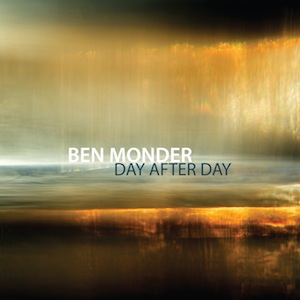Label: Timezone Records, 2019
Personnel – Floris Kappeyne: piano, synthesizer; Tijs Klaassen: bass; Wouter Kuhne: drums + Janneke Stoute: vocals.
Reverberating synthesizer drones and waves invite us to a mysterious trip in the outer space. That’s how the 23-year-old Dutch pianist Floris Kappeyne starts out his new trio album, Synesthesia, a title that has everything to do with sensorial stimulation and reaction. His bandmates, bassist Tijs Klaassen and drummer Wouter Kuhne, stick to that idea, working diligently to provide a skeletal structure that serves, reacts to, and interacts with the pianist’s harmonic ideas and lyrical terminology.
Throughout the 15 short original movements that compose the album, you will experience music that may be volatile or lingering, abstract or clear, vouching for unity or opting for disintegration. The course of things is unpredictable, often non-linear, and that’s where the mystery and magic of Kappeyne’s music come from.
“Prelude: I” offers occasional bass pedals and subtly rattling snare, yet, its ever-shifting textures and time feel make us constantly alert. The piano sometimes calls for the unobvious universe of Paul Bley while the vertiginous, dramatic nosedives into the lower register give it a punch that is jazzier than classical. In turn, “Prelude: II” flows with a modern, brushed, syncopated fat beat in a relaxed synth-cloud environment. Its uncompromising trajectories made me imagine Sun Ra exploring downtempo.
Communication is well patented in the three-way conversation offered on “Prelude: Va”, where the piano responds to the introductory drums and, subsequently, the bass responds to the piano. A conspicuous motif serves them as the topic and the bassist even dares to swing for a bit, pushing more and more the threshold, as he seems to exhort expansiveness. Another example of communicative effort is “Prelude Vc”. On top of the deep-seated bass, we find abstract, free-flowing piano flurries and rhythmic figures on the verge of tonality that definitely foment the boldness of jazz.
The trio shows an optimum control of suspended ambiances on “Prelude III” by incorporating deep bowed bass, hushed brushes, and single-note textural pianism. Silences don’t scare them. They play with it, in a way that is soothing and disquieting alike. On the shape-shifting “Prelude VII”, we have that weird feeling that something is about to happen on the grounds of somewhat eerie vibes. Even so, the sparkling snare and the confident piano strut, in conjunction with the bass, deviate unexpectedly into a modern classical passage whose movements are dreamy, sweeping, and splendorous.
Variety and imagination are nothing to worry about here, and the well-structured recording also incorporates two vocal tunes - “Prelude IX” features a Dutch poem meant to be turned into music by classical singer Janneke Stoute and is momentarily agitated by polyrhythmic percussion; “Prelude: X” features a 4-piece choir with synth.
While en listening route, you’ll also detect a couple of solo piano pieces and a drums-only speech, before it all ends in the playful electro vibes of “Prelude IV”, which finishes off the album with odd-metered passages and a futuristic attitude.
Incorporating tradition and novelty, Kappeyne and his trio hardly approach the music in a conventional manner. They align energies while searching for new directions and manage to get some fresh results.
Grade B+
Favorite Tracks:
02 - Prelude I ► 08 - Prelude VII ► 11 - Prelude Vc








































